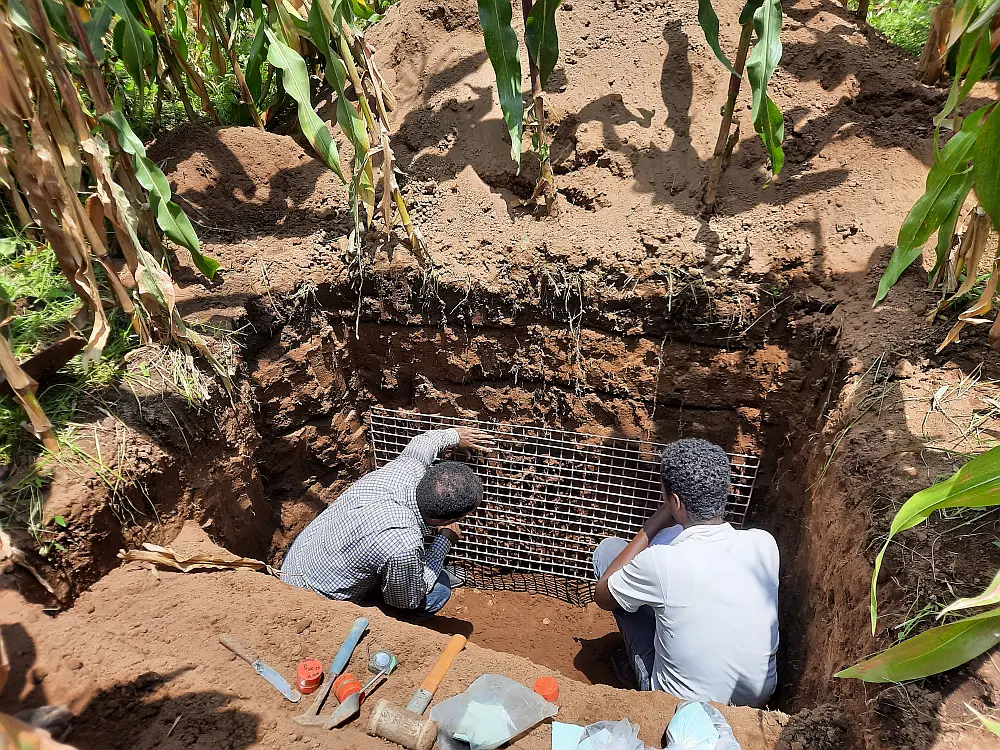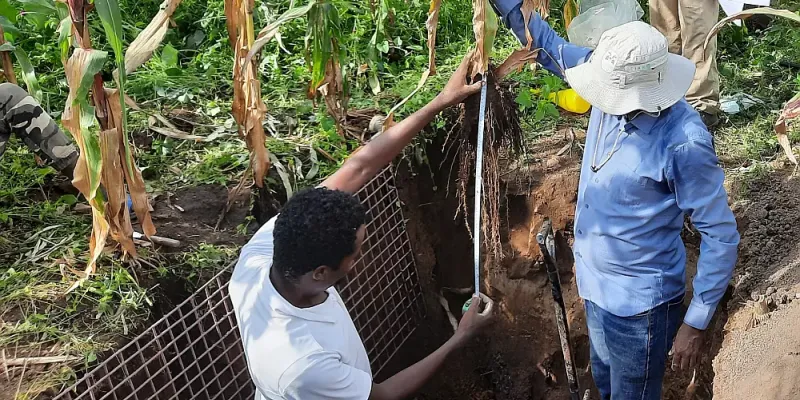Fieldwork underway in Ethiopia to support climate-smart fertiliser recommendations
Musefa Redi Abegaze (right) assessing the root depth and density of a maize plant after carefully detaching the soil from the roots
During the 2023 main cropping season, research fieldwork was carried out in Ethiopia by PhD candidate Musefa Redi Abegaz in support of climate-smart agriculture, specifically to derive climate-smart fertilizer recommendations in Ethiopia. This research is part of the the Land Soil Crop Information Services (LSC Hubs) project.
The goal of this fieldwork research is to validate the soil rootable depth map and the individual rootability-limiting soil factors (constraints), as well as the Root Zone Plant Available Water Holding Capacity (RZ-PAWHC) map for central Ethiopia, developed in the project.
“Understanding the soils beyond topsoil fertility such as root zone plant available water holding capacity is important for optimizing crop productivity and sustainable agriculture,” said Musefa.

Musefa is carrying out his PhD-research at Wageningen University under the supervision of Prof. dr. Gerard Heuvelink (Wageningen University, ISRIC), Johan Leenaars (ISRIC), Dr. Temesgen Desalegn (Ethiopian Institute of Agricultural Research,EIAR), and Dr. Mezegebu Getnet (Stichting Wageningen Research Ethiopia, SWR).
“Musefa’s PhD-research is novel in that it goes beyond mapping only basic soil properties but extends this to more complex soil properties, such as the root zone plant available water holding capacity. This is highly relevant information for farmers and land managers. The fieldwork provides valuable independent validation data needed to assess the accuracy of the maps produced,” explained Prof. dr. Gerard Heuvelink.
Learn more about this research on the Land Soil Crop Hubs website.
This project is jointly funded by the European Union’s Development Smart Innovation through Research in Agriculture (DeSIRA) program, The Netherlands’ Ministry of Foreign Affairs and a contribution from ISRIC. Learn more about the project at LSC-hubs.org.

